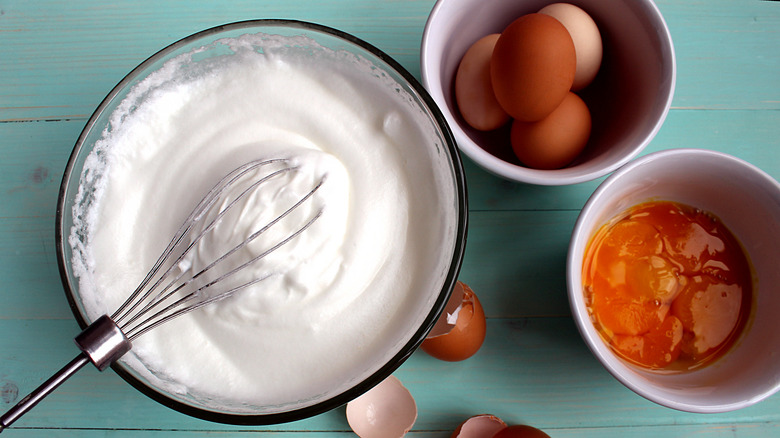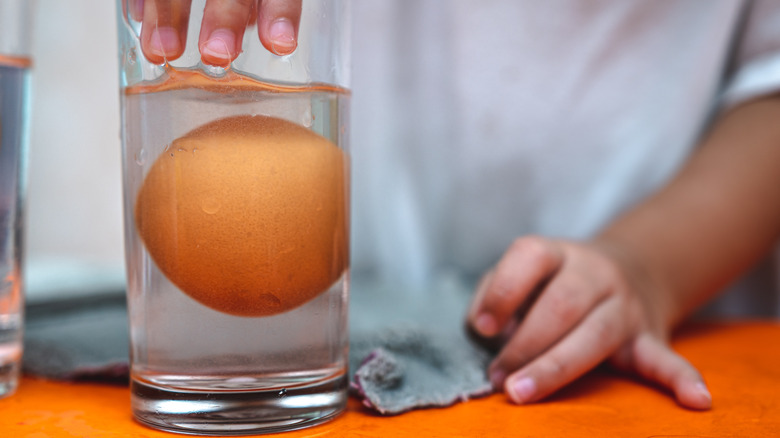Why Older Egg Whites Are Easier To Whip
Whipping up egg whites can be a difficult process, with any molecule of fat or misstep leading to a deflated failure. For this reason, there are numerous tips and rules that bakers can discover, from keeping your bowl clean to how weather can affect the whip. One odd tip revolves around using older egg whites to get the tallest, fluffiest egg foam possible.
Much of this hack relies on the consistency of the old vs. new egg white. The whites of older eggs are thinner and more watery than fresh egg whites, but it's not because more water has somehow entered your egg. As the egg ages, the white becomes more alkaline, a process that causes egg white proteins to repel one another rather than attract. This leads to the looser appearance of the egg white. Because of this, fresh eggs make the best option for compact poached eggs, as the firmer whites tend to stay in a thick cloud near the yolk. But why would a looser, older egg white whip up better than a thick, fresh one?
How to check your eggs age
When whipping egg whites, the whole point is that you want to unravel the network of proteins to create a gossamer foam. So the looser the egg white protein bonds, the better the whipping. For this volume, bakers are sacrificing a bit of stability, as this loosely bonded egg white can also lose air as easily as it gained it. This is only a concern if you're planning on making a meringue, though, as that is completely dependent on the stability of the egg foam. But it's still a solid hack when you want to whip up an egg foam quickly to fold into a batter, like for a sponge cake or soufflé.
So how do you distinguish between a safe old egg and a rotten one? To determine the age of your egg, all you need is a glass full of water. If your egg sinks to the bottom and lays on its side, it's a fresh egg. If the egg floats to the top, it's too old. When the egg sits upright on the bottom of the glass, the egg is old but not spoiled — perfect for your egg foam. You're basically assessing the amount of air that has permeated the eggshell wall, creating a bubble. This bubble grows as the egg gets older.
With this bit of science on your side, you can begin whipping up egg whites faster than ever.

